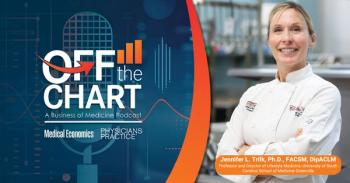
Being a Physician Also Means Being a Teacher
While we spend most of our days seeing patients, reaching out to teach others of all ages can very fulfilling for physicians.
As physicians, we are often given the opportunity to teach. Every day, we need to teach our patients about their diagnosis, what the possible outcomes are, what the treatment options are. We teach them about the benefits of certain behaviors, and the risks of others. We teach family members how to help our patients, both physically and emotionally.
We also often have the chance to reach out and teach others in our community. We give lectures to the public about health and wellness. Many hospitals, including the one to which I have privileges, offer a series of talks to the community, on topics ranging from healthy diets to coping with cancer. These lectures are often free to the public and are generally well attended. For the public, it serves as a means to learn more about a disease that they or a loved one has. For the physician, it allows us to share our knowledge with more people. It is fulfilling, and is also great free advertising.
Some of us also have faculty appointments at medical schools. As a volunteer clinical instructor or professor, we are able to pass on our expertise to the next generation of doctors. There are things that you just can’t learn from a book. Speaking to someone who has been in the trenches and someone who has stories about real patients helps these students to better connect the theory with the practice of medicine.
I recently had an unusual opportunity to speak to some high school students about diabetes. Our regional high school district has specialty programs scattered through the county. One such program is a medical science program in my town’s high school. Hundreds of eighth graders apply each year and only a handful are accepted. They invite some of the local doctors to speak to them about a topic of their choice. I decided to talk to them about diabetes. They were a bright and attentive audience. It is heartening to know that there are still bright young people who want to pursue medicine.
When my children were in first and second grade, each child was made "Star Student" or something like that. During that week, each child could bring in a favorite toy, CD, book …and parent. I would go in and talk to them about healthy food and exercise. I showed them a reflex hammer. I gave them each a disposable stethoscope and let them listen to their hearts and bellies. That was lots of fun.
While we spend most of our days seeing patients, reaching out to teach others of all ages can very fulfilling.
Newsletter
Optimize your practice with the Physicians Practice newsletter, offering management pearls, leadership tips, and business strategies tailored for practice administrators and physicians of any specialty.








